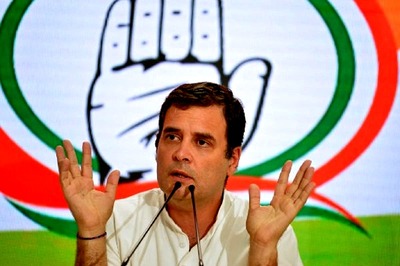
views
New Delhi: Foreign funds have pulled out more than $ 2.7 billion from the Indian stock market in the last three weeks, contributing to the recent plunge in the South Asian market after its spectacular rally, market regulator data showed.
Experts said on Monday it would take some time for foreign investors to return to the Indian market, despite the tremendous lure of its booming economy. And when investors do return, analysts doubt there would be the sort of rush as was seen in the past year, when foreign funds pumped a record $ 12.3 billion into Indian shares.
The Indian stock market has been one of the hardest hit during recent turmoil in global markets, which was set off by fears of rising interest rates, higher inflation and a possible slowing of the world economy.
Foreign institutional investors were net sellers in almost every trading session between May 13 and June 2, pulling out $ 2.73 billion in investments, according to the latest data from the Securities Exchange Board of India.
The Bombay Stock Exchange's benchmark index - the 30-company Sensex - has fallen 16 per cent over the last three weeks since the US Federal Reserve raised a key interest rate and signaled more hikes might follow.
Before the slide began, the Sensex hit an all time high of 12,612 on May 10, double of where it was a year ago and one of the world's best-performing markets.
Analysts say it will take several months for the Sensex to return to that level.
"I don't see a rally resuming until the end of this year. The plunge has shattered investors' confidence," said Ajit Surana at Dimensional Securities, a Bombay-based brokerage house.
Surana predicted a volatile market until there are firm signs of interest rates and inflation stabilizing in the United States and that the global markets have quieted down.
On Monday, the Sensex fell 97 points, or 1 per cent, to 10,440 in the first hour of trading.
Analysts say the Indian market is particularly prone to dramatic swings.
The market rose so high so fast because too much money was chasing too few stocks - and the shares dropped quickly for the same reason when markets worldwide weakened, said Georges Ugeux, chief executive of Galileo Global Advisors, a New York-based investment advisory firm.
Despite a well-developed market, private groups and the government still hold large blocks of shares in top Indian companies, limiting the size of floating stocks. The government's failure to privatize more state-run companies - because of opposition from powerful leftist allies - has added to the problem, Ugeux said.



















Comments
0 comment